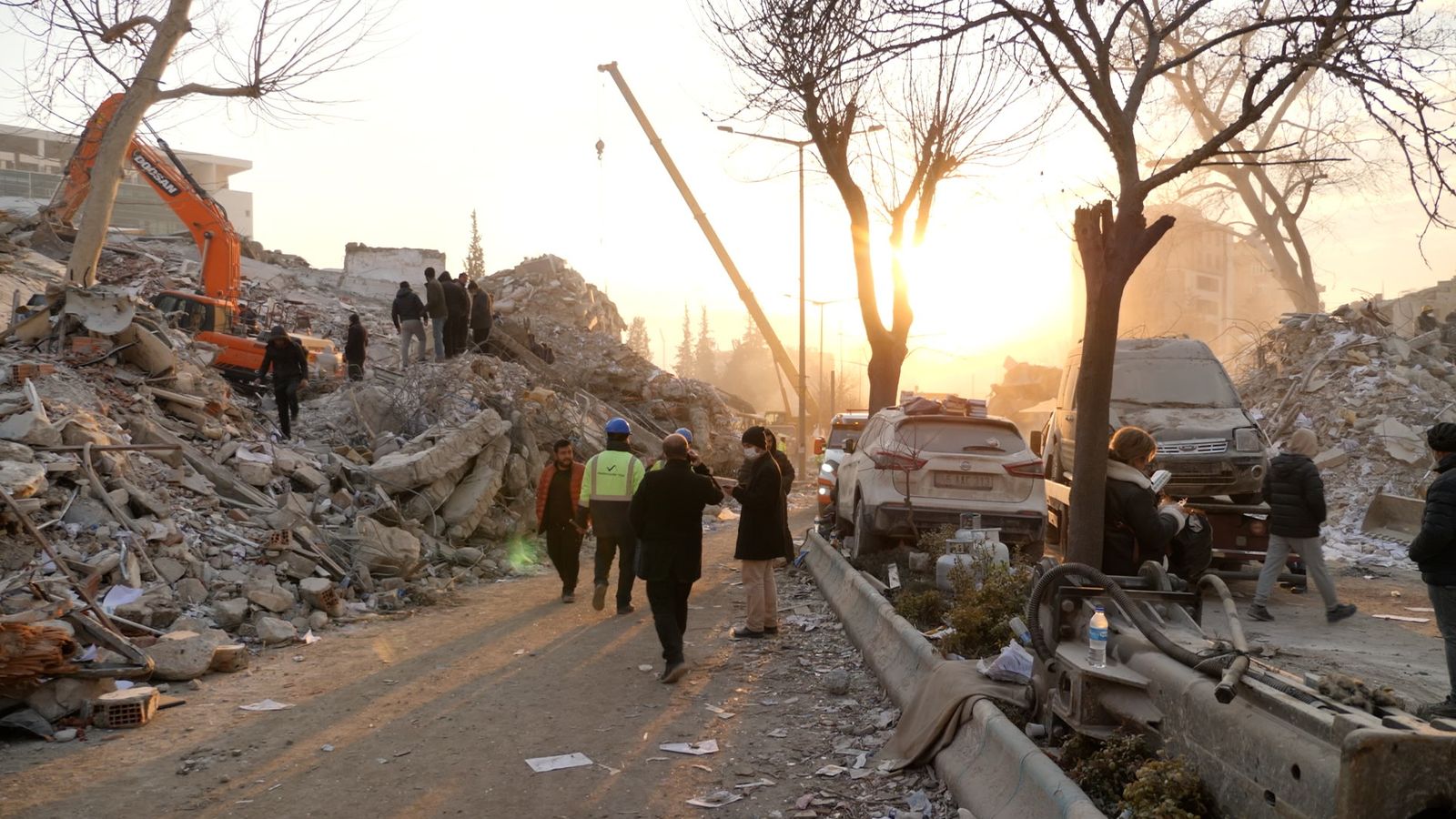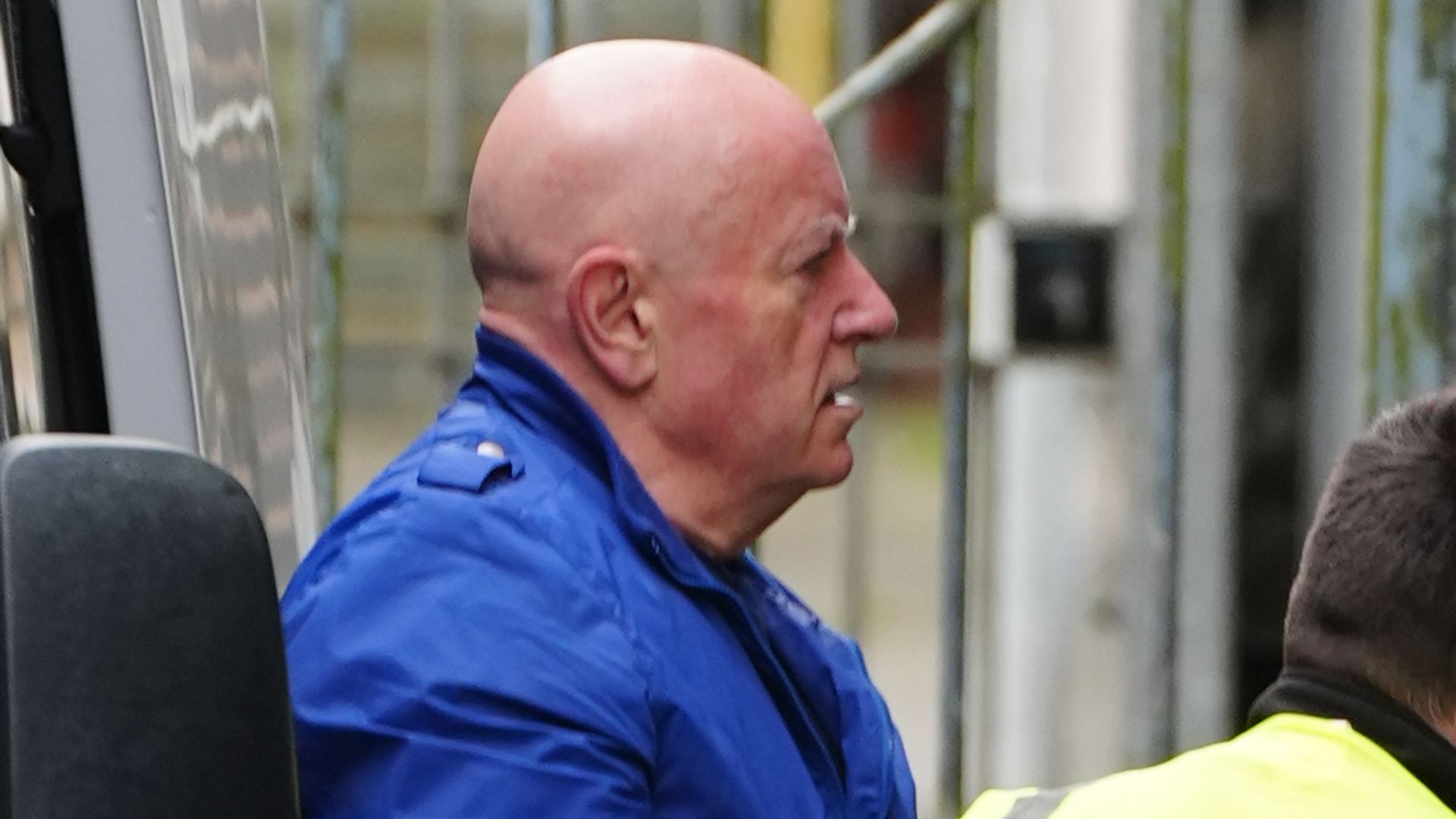When the Kenno family left Azaz, Syria a decade ago, fleeing the country’s civil war, they chose to seek refuge in Kahramanmaras. A picturesque city sprawled along the Binboga mountain range.
Many of them settled along Azerbaycan boulevard and raised their families in the historic Turkish community. They learnt the language, sent their children to school and called the town their home.
Then the earthquakes hit and ripped through their family.
Since the disaster struck, Mohamed Kenno has been steadfastly searching for his aunts, uncles and cousins.
The 27-year-old studied business management at the University of Gaziantep, just a little over an hour away.
Gaziantep is closer to the 7.8 magnitude earthquake’s epicentre but many of its new, proofed buildings withstood the pressure.
The road where his extended family lived in Kahramanmaras, slightly further from the epicentre, did not. The long boulevard is now bordered by piles of debris on either side.
Mohamed has been guarding the wreckage and pulling out his loved ones – dead or alive.
Five households in the Kenno family were destroyed by the earthquake. 18 of them survived and 11 were killed.
The names of those they lost are to be remembered:
Fadil Subhi Kenno
Salih Fadil Subhi Kenno
Subhi Fadil Kenno
Fadil Subhi Fadil Kenno
Ghani Subhi Fadil Kenno
Fadil bin Abdelhameed Fadil Kenno
Ayat Fadil Subhi Kenno
Fadeela bint Salah Fadil Subhi Kenno
Tasneem bint Abdel Hameed Fadil Kenno
Sham bint Abdel Hameed Fadil Kenno
Fadeela bint Abdel Hameed Fadil Kenno.
We witnessed when two of his cousins, Tasneem and Sham, were retrieved. Tasneem, 10, was found dead and the youngest Sham, eight, was astonishingly found alive after five full days. She was taken to the hospital but died from her injuries hours later. A glimmering moment of survival followed by the harsh reality of heartache.
The third sister Fadeela, 14, and cousin Ainoor, three, are still buried under the rubble and though they are likely dead, Mohamed refuses to leave their bodies to rot.
He is still guiding the search for them and only leaves the site to pray at the mosque, update their surviving parents and make trips to the Kilis border to transfer the bodies to be laid to rest in Azaz.
“We honour the dead with a proper burial. We return to Syria, our land, our country, to lie with our relatives,” says Mohamed, holding a tub of Vicks VapoRub he uses to help with the smell of decomposing bodies filling the air.
Read more:
Final funerals held for 24 Turkish Cypriot children killed while on school volleyball trip
Miracles are few and far between as search for life becomes bid to honour the dead
Survivors urgently need faster aid to ‘save lives’ – as WHO says disaster ‘overwhelmed everyone’
Despite his family’s unfathomable loss, Mohamed’s faith is unwavering. He strongly believes that the delayed response in their communities and inaction in his home region of northwest Syria is a continuation of the neglect his people experienced throughout the war.
“The international community only intervenes based on their own interest. Their actions have destroyed our country,” he says.
In the same breath, Mohamed refuses to allocate blame for the tragedy of this natural disaster. Unlike the war, he sees it as an act of God and one that he cannot resist.
“We escaped death and came to it – and that is God’s will,” he says, raising his hands resignedly.
In one Syrian family, we intimately witnessed the depth of this devastation.
Eleven members lost and four of them children.
In one Syrian man, we witnessed the patience, perseverance and care that is needed to power through.







